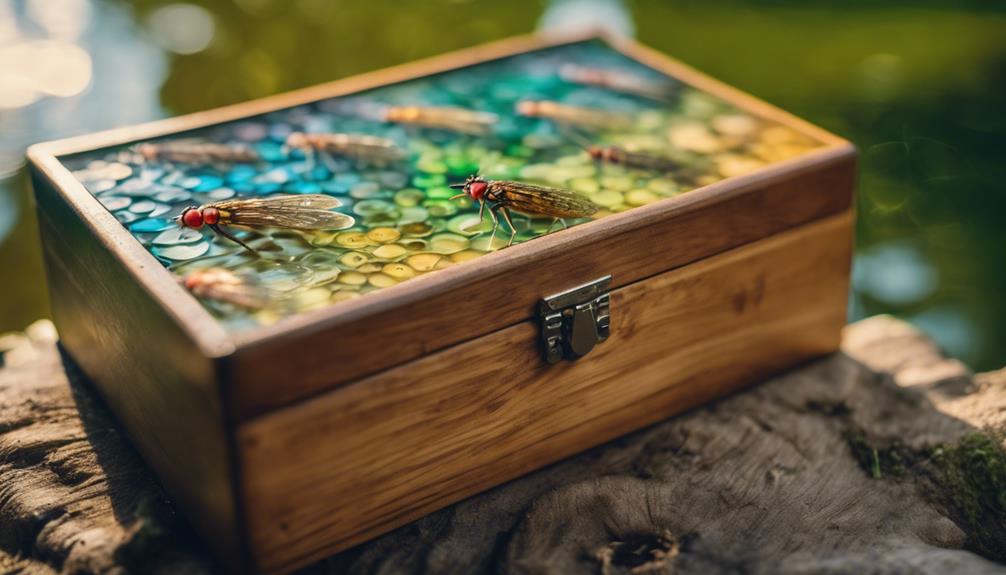Freshwater fishing is a popular outdoor activity that attracts millions of enthusiasts each year. Whether you’re a seasoned angler or a curious beginner, understanding what freshwater fishing entails can enhance your experience and help you appreciate the beauty of nature. In this comprehensive guide, we will explore the various aspects of freshwater fishing, from its definition and types to techniques and equipment, ensuring you have all the information you need to get started.
Understanding Freshwater Fishing
Freshwater fishing refers to the practice of catching fish from rivers, lakes, ponds, and streams that contain freshwater. Unlike saltwater fishing, which occurs in oceans and seas, freshwater fishing focuses on habitats that are not influenced by tidal waters. The primary species targeted in freshwater fishing include bass, trout, catfish, and panfish, among others. This activity not only offers a chance to catch fish but also provides an opportunity to connect with nature and enjoy tranquil surroundings.
The Types of Freshwater Fishing
There are several types of freshwater fishing, each offering unique experiences and challenges. The most common types include:
1. Lure Fishing: This involves using artificial lures to attract fish. Anglers can experiment with different types of lures to see which ones are most effective in a particular body of water.
2. Bait Fishing: This traditional method uses live or natural bait to entice fish. Worms, minnows, and insects are popular choices and can be very effective.
3. Fly Fishing: A specialized form of fishing that uses lightweight flies to mimic the insect life that fish feed on. Fly fishing requires specific techniques and equipment, making it a favorite among many anglers.
4. Ice Fishing: Practiced in colder climates, ice fishing involves drilling holes in frozen water bodies to catch fish. This unique approach offers a different set of challenges compared to traditional fishing.
5. Catch and Release: Many anglers practice catch and release fishing to conserve fish populations. This method involves catching fish and then safely returning them to the water.
Essential Gear for Freshwater Fishing
To get started with freshwater fishing, you’ll need some essential gear. The right equipment can significantly enhance your fishing experience. Here’s a list of must-have items:
– Fishing Rod and Reel: Choose a rod and reel combo that suits your fishing style and the types of fish you’re targeting. Spinning rods are great for beginners as they are easy to use.
– Fishing Line: Selecting the right fishing line is crucial. Monofilament line is user-friendly for beginners, while braided line offers strength and sensitivity.
– Baits and Lures: Depending on the species you’re targeting, stock up on a variety of baits and lures. Research local fish species to know what works best in your area.
– Fishing Tackle Box: Organize your gear with a tackle box that can hold lures, hooks, weights, and other accessories.
– Fishing License: Don’t forget to check local regulations and obtain a fishing license before you head out. This ensures you are fishing legally and responsibly.
Locating Freshwater Fishing Spots
Finding the perfect fishing spot can significantly impact your success. Freshwater fishing can take place in various environments, including lakes, rivers, and ponds. Here are some tips for locating ideal fishing spots:
1. Research Local Waters: Use online resources or local fishing guides to find popular freshwater fishing locations. Look for lakes or rivers known for specific fish species.
2. Check Fishing Reports: Many states provide fishing reports that detail recent catches and water conditions. This information can guide you to productive areas.
3. Observe the Environment: Look for natural features such as submerged structures, weed beds, or current breaks. These areas often attract fish seeking shelter or food.
4. Talk to Local Anglers: Engaging with fellow anglers can provide valuable insights into the best fishing spots and techniques in your area.
Techniques for Successful Freshwater Fishing
While freshwater fishing can be straightforward, employing specific techniques can improve your chances of landing a catch. Here are some effective methods:
– Casting: Practice your casting skills to reach the desired fishing spots. A well-placed cast can make all the difference in attracting fish.
– Retrieving: Experiment with different retrieval speeds and techniques. Fish may respond differently depending on the time of day or water conditions.
– Patience and Timing: Fish are often more active during certain times of the day, such as early morning or late evening. Be patient and willing to wait for the right moment to strike.
– Observation: Pay attention to the water’s surface for signs of fish activity. Look for jumping fish or ripples that indicate feeding behavior.
Understanding Local Fishing Regulations
Before heading out to fish, it’s essential to familiarize yourself with local fishing regulations. These rules are in place to protect fish populations and maintain healthy ecosystems. Here are some key points to consider:
– Licensing Requirements: Ensure you have the appropriate fishing license for your location. Some areas may require additional permits for specific species.
– Size and Bag Limits: Many regions enforce size and bag limits to prevent overfishing. Knowing these limits helps maintain sustainable fish populations.
– Seasons and Restrictions: Some species may have designated fishing seasons or restrictions on certain methods. Always check local regulations before you fish.
Conclusion: Embrace the Joy of Freshwater Fishing
Freshwater fishing is not just about catching fish; it’s about enjoying the great outdoors, relaxing, and spending quality time with friends and family. Whether you’re casting your line for the first time or honing your skills, there’s always something new to learn and experience in the world of fishing. By understanding what freshwater fishing is, the types of fishing available, the necessary gear, techniques, and local regulations, you can embark on a rewarding journey that connects you with nature. So grab your gear, head to the water, and embrace the joy of freshwater fishing!
